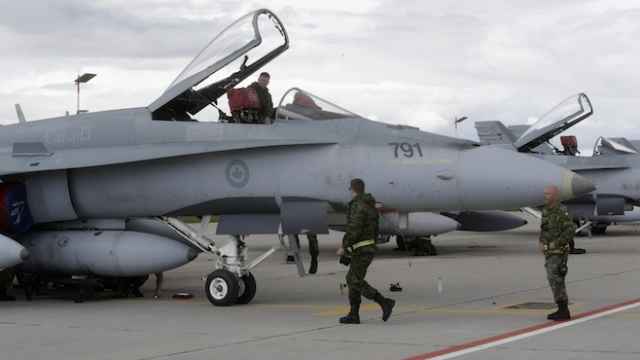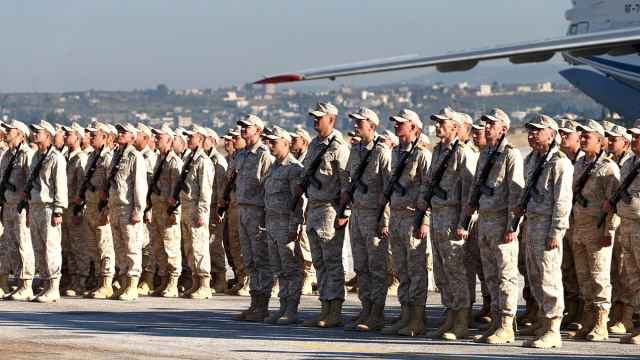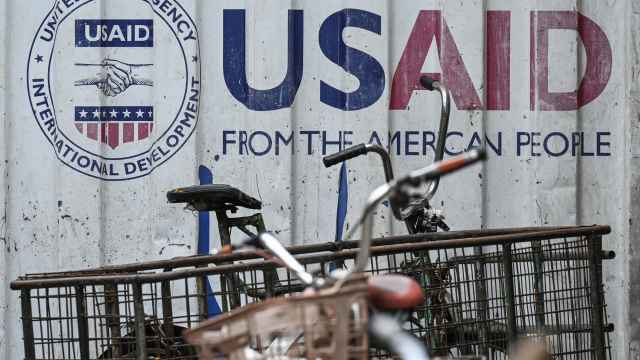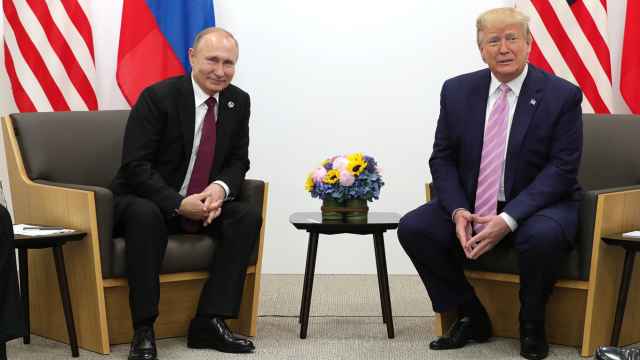In the face of growing aggression by Russia, the U.S. and Georgia moved Sunday to expand their defense relationship — including the possible sale of U.S. Black Hawk helicopters to the former Soviet bloc nation at the crossroads of Eastern Europe and Asia.
Defense Secretary Chuck Hagel said resident Vladimir Putin's move to annex the Crimea region of Ukraine has further isolated Moscow.
"It has done a tremendous amount to coalesce NATO and Europe to come together recognizing what President Putin's actions have wrought, the danger that that represents to all of Europe," Hagel said during a news conference with Georgia's defense minister.
Ukraine and Russia signed a cease-fire two days ago, but there have been explosions near the airport in Donetsk, raising concerns the agreement may be on the verge of collapse.
Hagel's meetings here come on the heels of the NATO summit in Wales where allies agreed to expand Georgia's role as a NATO partner and reaffirm a longer-term effort to admit the former Soviet republic into the alliance.
The defense minister, Irakli Alasania, said it has been painful for Georgia — which also fought and lost an invasion by Russia in 2008 — to see the world be unable to check Russia's aggression. About 20 percent of Georgia — largely the separatist regions of Abkhazia and South Ossetia — is still occupied by Russia.
But he said Georgia is pleased with NATO's decision last week to make his country an expanded partner, giving it access to more allied support and services.
Hagel said the U.S. and Georgia did not reach a final agreement on the sale of Black Hawks, but they are discussing prices and other details.
At its 2008 summit in Bucharest, Romania, then-U.S. President George W. Bush and other NATO leaders agreed that Ukraine and Georgia, both former Soviet republics that the Russians consider part of their "near abroad," would one day be admitted to the alliance.
While both countries continue to work toward that goal — which the U.S. supports — there are concerns about Russia's reaction. Some nations have flatly ruled it out, saying it would heighten tensions in the region.
A Message from The Moscow Times:
Dear readers,
We are facing unprecedented challenges. Russia's Prosecutor General's Office has designated The Moscow Times as an "undesirable" organization, criminalizing our work and putting our staff at risk of prosecution. This follows our earlier unjust labeling as a "foreign agent."
These actions are direct attempts to silence independent journalism in Russia. The authorities claim our work "discredits the decisions of the Russian leadership." We see things differently: we strive to provide accurate, unbiased reporting on Russia.
We, the journalists of The Moscow Times, refuse to be silenced. But to continue our work, we need your help.
Your support, no matter how small, makes a world of difference. If you can, please support us monthly starting from just $2. It's quick to set up, and every contribution makes a significant impact.
By supporting The Moscow Times, you're defending open, independent journalism in the face of repression. Thank you for standing with us.
Remind me later.





